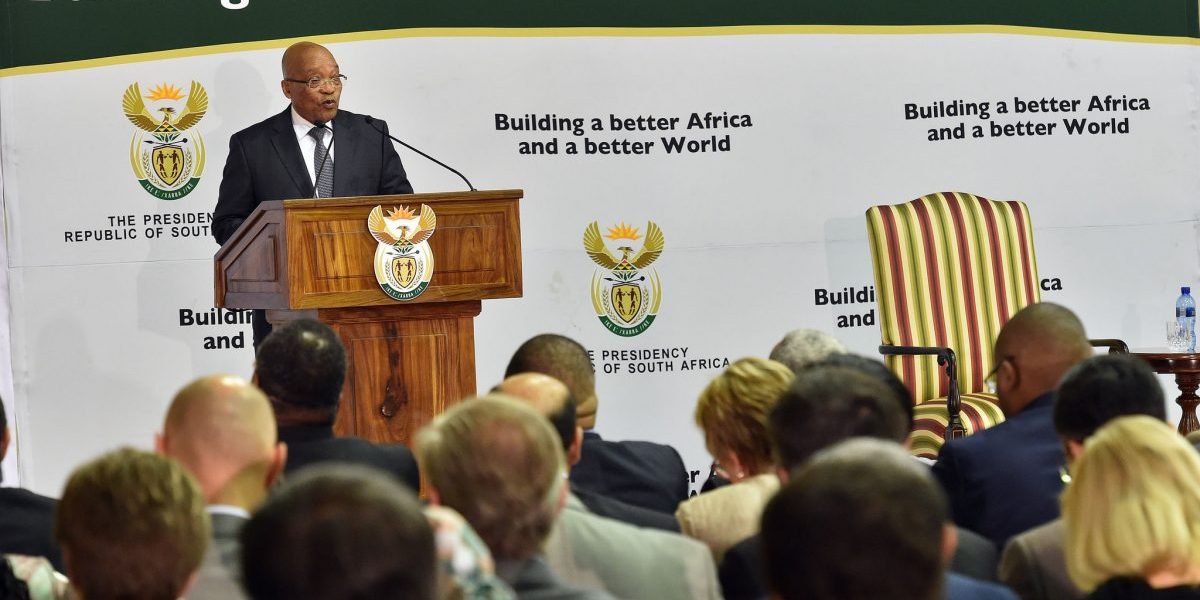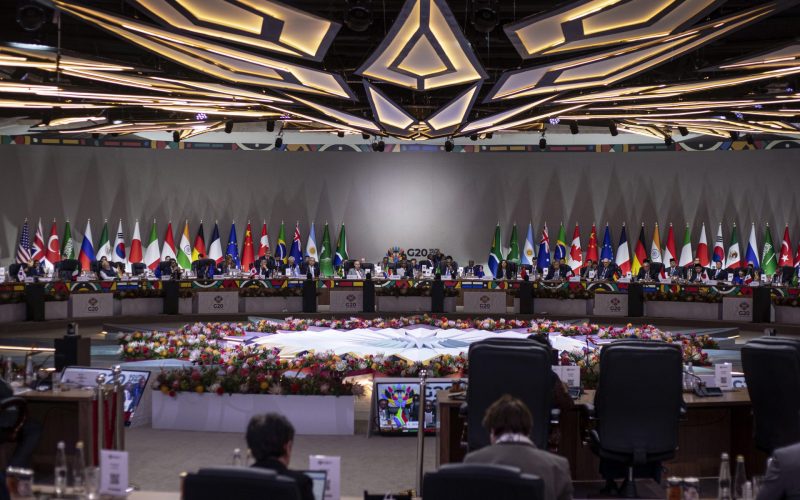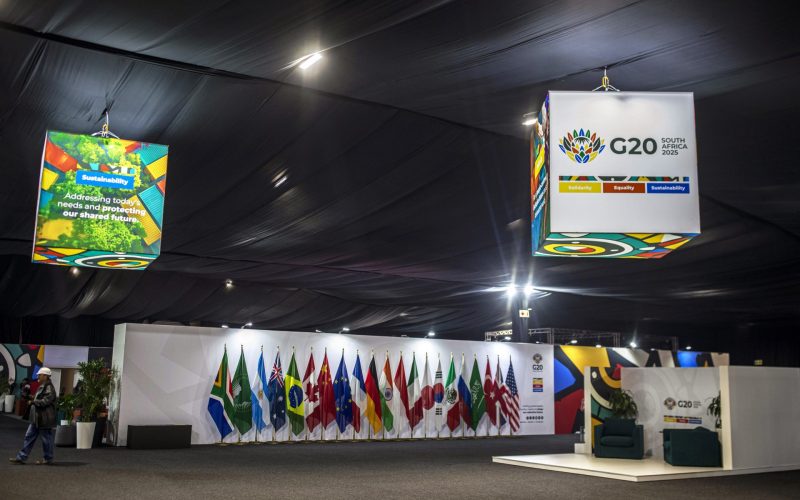This can only be interpreted as a retrenchment of South Africa’s global diplomatic ambition and reach, but also begs the question as to who is running South Africa’s foreign policy, or more fundamentally, whether or not there is a South African foreign policy under the Zuma administration?
While these questions would have some formerly amongst us reaching for pipes of philosophical contemplation, the issues raised are material and of national importance. Constitutionally, foreign policy formulation falls to the State President and is a responsibility tailor-made for a ‘international relations’ leader such as former President Mbeki. Indeed, while it is common cause that as Deputy President Mbeki was de facto Prime Minister and Foreign Minister, former President Nelson Mandela, nevertheless, set the tone and ethos of foreign policy by virtue of his charismatic authority, global status and principled interventions in issues ranging from Lockerbie and Libya, to Burundi and Nigeria.
Despite profound domestic failures and overseeing the almost terminal collapse of Zimbabwe on his watch, Mbeki the technocratic foreign policy President par excellence achieved greater policy and institutional reform on the African continent than any leader in history. Mbeki bequeathed to us the gleaming institutional architecture of the African Union, but the question that now arises is how enduring that legacy will be now that he and a cohort of reformist African leadership such as Obasanjo (Nigeria), Kufuor (Ghana) and Mkapa (Tanzania) have left the continental stage?
Having survived the Chairmanship of Muammar Gaddafi, the African Union is now chaired by the competent, yet impotent, Malawian President Bingu Mutharika and thus little can be expected from the Lilongwe/Addis Ababa axis. Moreover, the continent is facing a raft of crises and challenges beyond the chronic cases of Sudan, the DRC, Somalia and Zimbabwe. The political and constitutional crisis in Kenya is proving intractable, Nigeria is leaderless at the federal level and Niger has just joined Guinea as a rogue political regime. Even if Mbeki’s institutional edifices prove robust, the above set of challenges will still require strong, shrewd and decisive political leadership for their resolution. If this agenda were not daunting enough, the looming continental crises of climate change, energy insecurity and water stress all have the potential to reverse the major governance and developmental progress painstakingly eked out over the past decade. Unsurprisingly, Africans across the continent are asking if Zuma is up to the task of providing leadership on all, or any, of these challenges. Zuma may demure personally, yet South Africa is now seated at the top table of continental and global governance and will be expected to sing for its supper.
Indeed, Zuma is not without international experience and exposure in exile, far from it. Even in the post-apartheid period, as Deputy President, Zuma played a deft and patient role in ensuring that Burundian negotiations remained on the long and winding road to resolution. In truth, Zuma can be credited with a far more diplomatic role in the Burundian peace process than that of Mandela. His style of engagement is demonstrably less imperious than his predecessor and this may auger well for some bilateral relations in Africa, but as with domestic policy, beyond the comradely bear hugs, policy clarity, negotiating skill and if needs be, hard bargaining are imperative to effective international governance. Zuma and his administration will not be able to uMshini-wami their way through the AU, G20, WTO and United Nations Security Council.
It is not just the configuration of South Africa’s external relations that is a cause for concern. Since the 2009 elections the diplomatic corps in Pretoria has been scratching its collective head as to whom within the Zuma administration it should be interacting to strengthen bilateral and multilateral relations. While both Department of International Relations and Co-Operation (DIRCO) Deputy Ministers are accessible and engaged, this does not translate into decision-making power. Consequently, initiatives and partnerships offered to Pretoria by progressive international nations are being ignored and opportunities are being lost at a time when the country is in need of as many progressive developmental partners as it can manage. This managerial lacuna is dilatory, dangerous and irresponsible of the government. Goodwill takes generations to build, but is being eroded by the one-handed clap that currently passes as South Africa’s international relations in the age of Zuma. Put bluntly, the inconvenient truth is that South Africa is in danger of being increasingly regarded as unreliable developmental partner.
An ever-demanding domestic agenda, acute fiscal constraints and the prospect of long-term national debt suggest that DIRCO in particular is a Department facing leaner times. This reality demands greater policy coherence and closer interdepartmental co-operation between the natural cluster of DIRCO, Trade and Industry, Defence and Intelligence. Moreover, if South Africa is to conduct effective international relations as a middle-ranking power, then far closer co-operation between DIRCO and the private sector is no longer a reluctant option, but rather a necessity. South Africa’s domestic imperatives of economic growth, sustainable job creation and effective industrial policy can all be aided by a coherent, strategic and well-calibrated political and economic diplomacy conducted with and supported by the private sector.
Irrespective of the role of the Presidency in the country’s international relations, for DIRCO to become an external driver of domestic economic growth for South Africa will require a number of departmental pathologies to be addressed. Firstly, despite excellent leadership by the Director General and his colleagues, it must fill the key posts that have lain vacant for far too long, particularly at the senior managerial levels. In this regard, DIRCO should consider secondments from the business and senior academic sector. Secondly, if we are to compete globally, then South Africa’s diplomats have to be the match of their international counterparts. Thus, to the conventional language proficiency of French, Portuguese, Kiswahili and Arabic on the African continent, should be added Mandarin, Russian and Urdu. Beyond linguistic proficiency; economic, trade, marine and environmental literacy must now become core to the repertoire of the South African diplomat. Most fundamentally, DIRCO must re-craft its role and mission to become the nation’s key institutional linkage between meeting the country’s domestic development imperatives by achieving its global ambitions.
Tim Hughes is Research Fellow with the South African Institute of International Affairs








